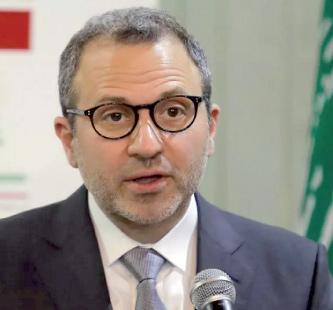
by AFP — BEIRUT — Lebanon’s former foreign minister Gebran Bassil on Sunday said the United States had urged him to sever ties with Shiite movement Hizbollah before targeting him with sanctions over alleged corruption. The punitive measures announced on Friday are the first against a senior Christian ally of Hizbollah, long targeted by US sanctions and blacklisted as a “terrorist” organisation. Bassil in a televised statement said the US embassy informed him he “should immediately comply with four demands or US sanctions would be implemented”. “Throughout all this discussion, the word corruption was never mentioned,” the 50-year-old son-in-law of Lebanon’s president added. He said the first demand was for him to “immediately sever ties with Hizbollah”, which then became the only request. He did not elaborate on the three other initial demands.
When he refused to comply, it appeared the sanctions “were linked to corruption and Hizbollah was barely mentioned, although they had not talked to me about anything but Hizbollah”, he said. He described the measures against him as a “crime”, and said he would be directing lawyers to appeal the decision and demand “moral and material compensation” in a US court. He spoke after his father-in-law, Lebanon’s President Michel Aoun, on Saturday said he had requested evidence of Bassil’s alleged wrongdoings. The US Treasury said it had targeted Bassil “for his role in corruption in Lebanon”, alleging in particular that he “steered Lebanese government funds to individuals close to him through a group of front companies” as energy minister. Bassil has been a minister in all cabinets from 2008 to 2019, most recently foreign minister in the government that stepped down under pressure from massive street protests last autumn. He is also head of the Free Patriotic Movement political party founded by Aoun, which together with Hizbollah and other allies holds a parliamentary majority. Critics have claimed he was behind many shady state dealings, especially during his time at the head of the energy ministry between 2009 and 2014. Bassil has repeatedly denied the accusations.



